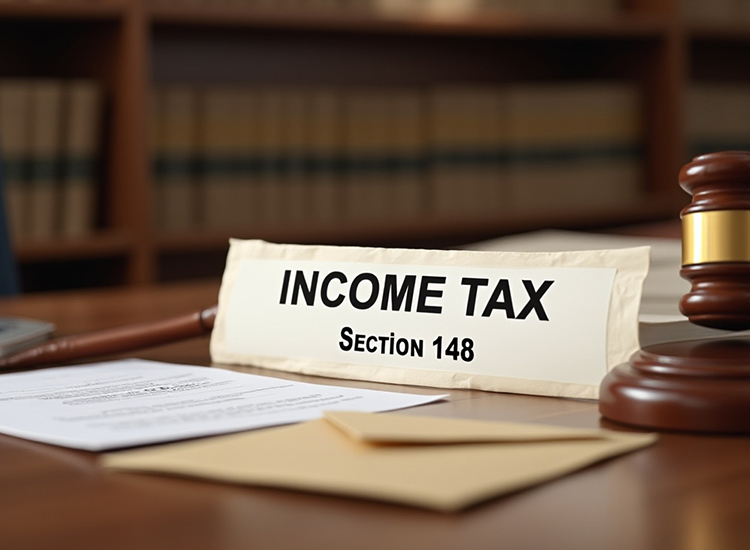Reassessment Proceedings under Section 148 of the Income Tax Act: Legal Framework, Challenges, and a Landmark Victory
Introduction
Reassessment proceedings under Section 148 of the Income Tax Act, 1961 have always been a powerful tool in the hands of the Income Tax Department to reopen past assessments where income is believed to have escaped assessment. However, with power comes responsibility and a fair process.
With the Finance Act, 2021, a significant overhaul was made to the reassessment provisions, including the introduction of Sections 148A and 148A(b). These changes aimed to bring transparency, ensure taxpayer rights, and curb arbitrary use of reassessment powers. Despite these reforms, procedural lapses continue to impact taxpayers, often requiring judicial intervention to uphold principles of natural justice.
This blog delves into the revised reassessment procedure, the common grounds for challenge, and highlights a real-life success story where we successfully got the reassessment proceedings quashed by the Bombay High Court.
What is Reassessment under Section 148?
Section 148 allows the Assessing Officer (AO) to reopen a taxpayer’s case if they believe income has escaped assessment. This could arise from new information, audit objections, or incorrect reporting by the taxpayer.
Earlier Regime (Pre-2021):
- AO could issue a notice under Section 148 directly after recording “reasons to believe”.
- No prior opportunity of being heard was mandated.
- The process often lacked transparency, leading to widespread litigation.
New Regime (Post-01.04.2021):
The Finance Act, 2021 introduced Section 148A to bring a pre-notice inquiry stage, ensuring a fairer process.
Now, before issuing a notice under Section 148:
- Notice under Section 148A(b) must be issued, giving the taxpayer an opportunity to respond.
- AO must consider the reply and pass a reasoned order under Section 148A(d).
- Only after this can a notice under Section 148 be issued to reopen the case.
This framework strengthens the principles of natural justice and aims to prevent arbitrary reassessment.

Grounds for Challenging Section 148 Notices
Despite these reforms, reassessment notices are still frequently challenged on several grounds, such as:
Incorrect Facts or Misapplication of Law
The entire reassessment may be based on incorrect assumptions or irrelevant material, making the notice invalid.
No Proper Opportunity to Respond
If the AO fails to give reasonable time or opportunity to the taxpayer to respond to the notice under 148A(b), the subsequent reassessment becomes vitiated.
Non-application of Mind by AO
If the order under 148A(d) is a mere formality and does not deal with the taxpayer’s reply, it can be challenged as a non-speaking order.
Lack of Sanction from Specified Authority
Reassessment must be approved by higher authorities as per Section 151. Failure to obtain this makes the proceedings void.
Our Success Story: Bombay High Court Quashes Section 148 Proceedings
Background
Our Client received a notice under Section 148A(b) alleging that certain income had escaped assessment. However:
- The case was reopened on incorrect facts.
- The notice failed to provide sufficient time or clarity for our Client to respond.
- The order under Section 148A(d) was passed without properly considering the Client’s case.
The Client faced undue reassessment proceedings that were both unjustified and procedurally flawed.
Legal Action: Filing a Writ Petition
We filed a writ petition before the Hon’ble Bombay High Court, challenging the validity of the notices and subsequent proceedings.
Advocate Sachin P. Kumar argued:
- The initiation of reassessment was based on a factually incorrect premise, amounting to non-application of mind.
- The Client was denied a fair opportunity to respond, violating the mandate of Section 148A(b).
- The order under Section 148A(d) was mechanical and non-speaking, without dealing with the Client’s reply or documents.
Court Ruling
After hearing the matter, the Hon’ble Bombay High Court:
- Quashed the notice under Section 148 and the order under Section 148A(d).
- Held that the Income Tax Department failed to follow proper procedure and had not given the Client a fair chance to respond.
- Closed the reassessment proceedings, granting full relief to the Client.
Outcome
This victory not only protected the Client from unlawful reassessment but also reinforced the principles of fair hearing and procedural compliance under the new reassessment regime.
Key Judicial Precedents on Section 148A
Several courts have echoed similar views, emphasizing procedural safeguards:
Union of India vs. Ashish Agarwal (SC, 2022)
The Supreme Court upheld the validity of old reassessment notices as deemed notices under the new law, but also emphasized the importance of natural justice and proper Section 148A proceedings.
Shivam Concast (P) Ltd. vs. Union of India (Allahabad HC, 2022)
Held that failure to provide proper time or documents with 148A(b) notice renders the reassessment void ab initio.
Abdul Raheem vs. ITO (Madras HC, 2023)
Quashed reassessment due to non-consideration of reply filed by the taxpayer.
These cases underscore that Section 148A is not a mere formality, but a vital protection for taxpayers.
Best Practices for Taxpayers
If you receive a notice under Section 148A(b):
1. Review the Notice Carefully
Understand the exact allegation. Ask for more time or documents if needed
2. Respond Promptly
File a well-reasoned reply with supporting documents. Use legal precedents if applicable.
3. Don’t Ignore Procedural Lapses
If you weren’t given adequate time or if your reply was not considered, it may be grounds to challenge the notice.
4. Engage a Tax Professional
A well-drafted response or legal challenge can prevent lengthy and costly litigation later.

Conclusion
The reassessment framework under Section 148, especially with the introduction of Section 148A, aims to balance the powers of the tax authorities with the rights of taxpayers. However, procedural compliance is not optional. When authorities issue reassessment notices based on incorrect facts or without giving a fair opportunity, such actions are vulnerable to judicial scrutiny.
Our recent success before the Bombay High Court, where both the reassessment notice and the 148A(d) order were quashed, is a testament to the importance of vigilant representation and respect for due process. It sends a strong message: lawful procedure must be followed, and taxpayer rights must be protected.
Need Help with Reassessment or Faceless Proceedings?
If you’ve received a notice under Section 148 or 148A, or are facing a faceless assessment without due opportunity, our expert team is here to help. From strategic replies to High Court writs, we offer comprehensive legal support. For any information drop us a mail on spkumarassociates@gmail.com or reach our website www.sachinpkumar.com

